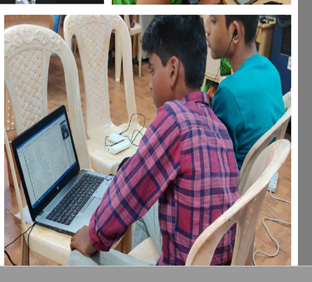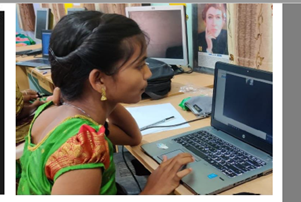

26th April 2022
Who is a mentor?
"Getting a mentor is a shortcut to success"

A mentor is someone who provides guidance based on your specific goals and context. They have had similar struggles in their journey in order to achieve their goals. A mentor tries to help one along the journey by telling him the easiest way to do certain things and avoiding some major mistakes. The concerned person will still make mistakes, will still do many things in a far from perfect manner, however the mistakes will be different.
Mentors want to ease the mentee's struggles by providing support, empathizing and listening to them when needed. Mentors don't always have the answers, but they generally try to connect them to people who are more knowledgeable than them on those specific issues. If a mentee's struggles are very unique or if they don't know anyone in their network who can guide them effectively, they help the concerned people find the answers based on their experiences.
Mentors do not have the perfect answers for solutions. Mentoring is not a formulaic coaching with a checklist of activities that all mentees must complete. More often, it is a discussion, exchange of ideas, experimentation. Every mentee has a unique personality and background so what works for one person will not work for others. As such, mentoring is usually a one-on-one process and takes a sustained commitment from both parties involved.
Mentoring is rewarding for both mentors and mentees. Mentees get to benefit from the experience and perspectives of someone with experience while mentors get the joy of giving back to the society. In a strong mentoring relationship, mentors and mentees can learn a lot from each other.

How does a mentor help?
A mentor is someone who provides guidance based on your specific goals and context. They have had similar struggles in their journey in order to achieve their goals. A mentor tries to help one along the journey by telling him the easiest way to do certain things and avoiding some major mistakes. The concerned person will still make mistakes, will still do many things in a far from perfect manner, however the mistakes will be different.
Mentors want to ease the mentee's struggles by providing support, empathizing and listening to them when needed. Mentors don't always have the answers, but they generally try to connect them to people who are more knowledgeable than them on those specific issues. If a mentee's struggles are very unique or if they don't know anyone in their network who can guide them effectively, they help the concerned people find the answers based on their experiences.
Mentors do not have the perfect answers for solutions. Mentoring is not a formulaic coaching with a checklist of activities that all mentees must complete. More often, it is a discussion, exchange of ideas, experimentation. Every mentee has a unique personality and background so what works for one person will not work for others. As such, mentoring is usually a one-on-one process and takes a sustained commitment from both parties involved.
Mentoring is rewarding for both mentors and mentees. Mentees get to benefit from the experience and perspectives of someone with experience while mentors get the joy of giving back to the society. In a strong mentoring relationship, mentors and mentees can learn a lot from each other.

How to find the right mentor?
Finding the right mentor is a matter of experimentation. There is no fixed set of guidelines which can help you find the perfect mentor, just as there is no "perfect" mentor.
A suitable mentor is generally someone in the same field as the mentee and has some similar experiences as the concerned individual. It is generally counterproductive and almost impossible to find someone with the same path as the mentee. An enriching mentor-mentee relationship is one where both mentor and mentee can learn from each other based on their different perspectives and life experiences.
Talking to certain people in the same field as the person in question (mentee) is the first step to finding the right mentor. One would have more meaningful conversations with those people eventually. Continued short conversations with those people for next few months would help in the long run for the involved individuals to understand each other better . People who are willing to make the commitment for mentoring would keep responding and providing valuable insights at each and every step of the process. Mentoring should not be a one-way street but a mutual relationship. Sharing thoughts on what the mentor is working on and offering to help them with anything they need help with will ensure a cordial relationship between the two.
Mentoring is generally more fruitful in a long-term commitment from both parties. So keep checking in with mentors on a regular cadence and discuss how you are doing on implementing the advice they have offered. It is an open exchange of ideas so if something is not working out for you, don't hesitate to share it with your mentor. You can have different mentors for different goals. One mentor could provide better guidance on hard skills while a senior mentor could provide very useful perspectives on leadership and soft skills.

RTL's Mentoring Program
RTL provides one-on-one mentorship for students in 9th-12th standard by partnering with corporate organisations. These volunteers connect with school students for a couple of hours every week and motivate them to perform well in their academics. They also guide them on various issues such as time management, peer pressure, dealing with exam anxiety.
RTL partnered with IBM to provide one-on-one mentorship for students. More than 50 students are benefitting from this personal guidance offered and are working towards achieving their dreams. The one-on-one sessions are highly beneficial for the students. They have a mentor outside their immediate environment with whom they can freely discuss any issues or hurdles that they are facing.
Regular sessions with mentors, motivates the students and helps them stay on track with their goals. The students can implement suggestions provided by mentors and report back on the feasibility of the ideas.
Similarly, RTL also provides public speaking mentoring sessions for students. This provides students a safe space to practice their English speaking skills and gain confidence without worrying about the negative impact.
The one-on-one mentoring initiatives by RTL are helping many students in government schools acquire relevant skills and perform better academically.
